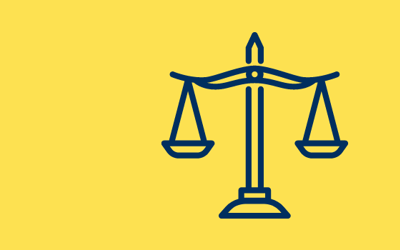Access to justice is a cornerstone of a fair society — but Scotland’s legal aid system is under threat.
The number of legal aid solicitors is shrinking every year, and shockingly, nearly one-third of practitioners are set to retire within the next decade.
This decline puts our most vulnerable citizens at greater risk. Without urgent action, we face the very real possibility of a complete collapse of the system within 10 years.
We’re calling on the Scottish Government to prioritise legal aid now. Together, we can ensure that justice remains accessible to everyone — not just those who can afford it.
Help us protect the rights of the most disadvantaged and keep legal aid on the political agenda.
Read more in our latest research.
Join our mission to protect equal access to justice — your support can make all the difference! Here's how you can take action:
• Pledge Your Support: Sign our campaign ledger and show that legal aid matters to you
• Spread the Word: Download our toolkit to share on social media, newsletters, or anywhere your voice can be heard.
• Share Your Why: Snap a photo with our “Legal Aid Matters to me because…” placard and post it on your social channels to inspire others.
• Speak Up: Use our ready-to-go template to send a letter to your MSP and urge them to prioritise legal aid.
Together, we can amplify the message: Legal Aid Matters. Get involved today!
Examples of situations where legal aid is available
Criminal
- If you're arrested or charged with a crime legal aid can help ensure you receive the representation you need
Civil and children's legal aid
- Every year thousands of parents in Scotland need legal aid for cases about access to their children and decisions about who a child should live with.
- Families going through divorce or separation can access legal aid too, to make sure things are settled properly and fairly.
- If a spouse needs a protection order to keep them safe, legal aid can help.
- Legal aid is also often needed if a loved one becomes unwell and isn’t able to make their own care decisions.
- Legal aid covers cases that go through the Children’s Hearings system.
- As well as cases relating to the family, legal aid is available in Scotland for civil matters like housing, debt, immigration, making a court appeal, or challenging the decisions of a government body by judicial review.
More information about legal aid
Am I eligible for legal aid?
The Scottish Legal Aid Board check your financial situation and the circumstances of your case before granting legal aid. We can’t advise if you are eligible for legal aid and you should visit the Scottish Legal Aid Board’s website or call them on 0845 122 8686.
There’s a calculator tool on their website which can give you a rough estimate on whether you’re financially eligible. If you receive a passported benefit, for instance income-based jobseekers’ allowance, then you should automatically pass the financial test. For certain types of criminal case, including any advice provided at a police station, legal aid is automatically available for those financially eligible.
How do I apply for legal aid?
A legal aid solicitor will help you to apply and you can find details of legal aid firms in your area from our Find a Solicitor tool. You’ll need to be able to prove your income and any money you have in bank or savings accounts. Ideally, bring along this documentation to your first appointment.
I need a specialist who also does legal aid work. Can you help?
The Society's specialist accreditation scheme offers recognition of solicitors who develop specialist knowledge during their careers.
Our Find A Solicitor tool allows you to search for accredited specialists in particular fields. However, some accredited specialists will not do legal aid work. If you click on the firm where the solicitor works , you can see whether the firm does legal aid. If so, or even if not, it’s worth giving them a call and explaining your case to see if they can help in any way.
Can a solicitor charge private rates whilst waiting on a legal aid application to be completed?
If you’re in receipt of legal aid, you won’t be asked to pay a private fee by the solicitor. Legal aid, however, may not pay your costs in full. For certain types of civil case, you may have to pay a contribution. These are usually very small for advice under legal aid, but can be larger for court work under legal aid. If you recover or gain money or assets through a successful court case, the Scottish Legal Aid Board will recover the costs of legal aid from these – a process called “clawback”. You can find out more details about these from the Scottish Legal Aid Board and whether you would be likely to pay a contribution.
I receive legal aid but wish to change solicitor. Can I do this?
It’s possible to transfer lawyers if you receive legal aid. However, the Scottish Legal Aid Board will consider whether it’s reasonable in the circumstances to allow that transfer to take place. The Scottish Legal Aid Board will assess your circumstances and if it’s reasonable to transfer to another legal aid solicitor, they will approve this. One example would be if you’ve moved to another part of the country.
What other sources of help are available?
Your local Citizens Advice Bureau offers advice on a range of topics and there is also a guide to your rights on the Citizens Advice Scotland website. Other advice organisations, like Shelter for housing issues, also offer valuable help. The clerks’ office at your local Sheriff Court can give you any court forms required.

Legal aid
Information for Scottish solicitors who carry out legal aid work, whether it's civil legal aid, criminal legal aid, or children's legal aid.

Find a Solicitor
Whatever you’re going through, use our online search tool to find a regulated solicitor you can trust to get you through it.

Frequently asked questions
Answers to other frequently asked questions about the work of the Law Society, finding a solicitor and dealing with your solicitor.







